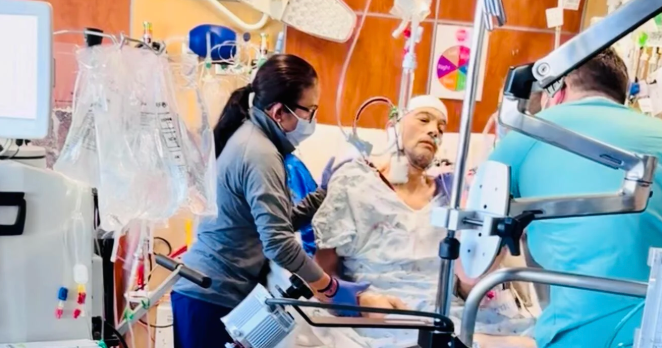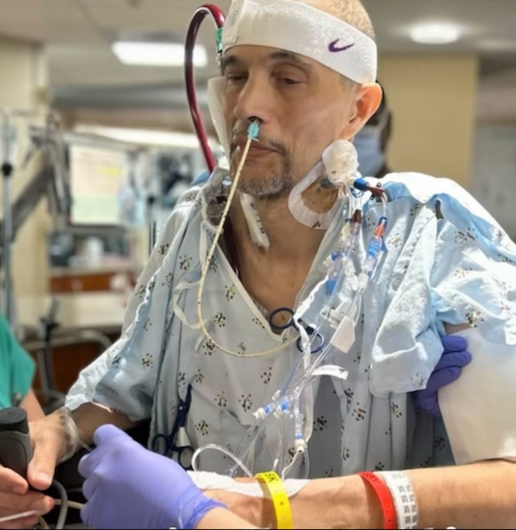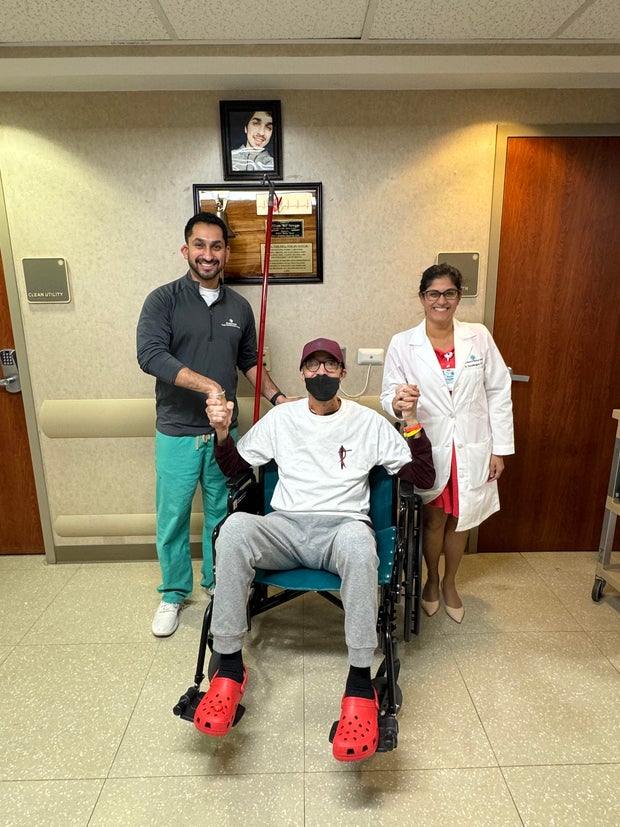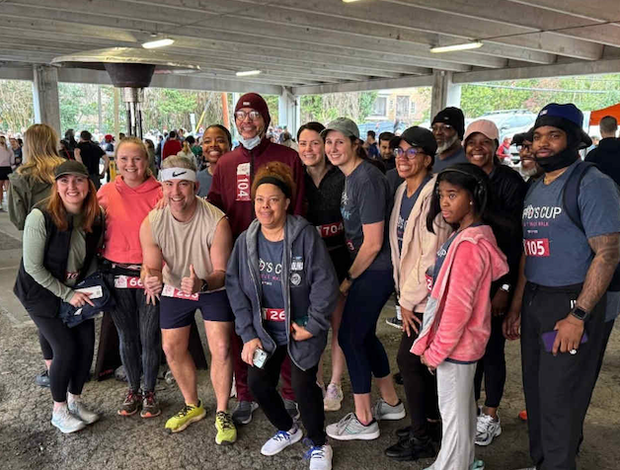Pastor Kelvis Reid knew that he was taking a risk wrapping Christmas presents with his family, but he couldn’t imagine spending the holidays any other way. He had just been diagnosed with a complicated condition called AL amyloidosis and wanted to spend time with his family and congregation before embarking on a long treatment journey.
Dr. Amar Parikh, the director of Cardio-Oncology at Atrium Health, had diagnosed Reid and warned him about the risk of a major cardiac event. Parikh had even trained Reid’s family in how to administer CPR, in case his heart stopped.
Reid was supposed to return to the hospital shortly after the holiday, but while wrapping presents with his wife and children after preaching a Christmas service, he felt a burning sensation in his chest.
“I looked at my wife, and I said, ‘Oh, mama.’ I remember saying that,” Reid said. “And then I don’t remember anything else again until the end of January.”
Kelvis Reid
Reid had experienced a major cardiac arrest. His family’s CPR training saved his life, Parikh said. He was hospitalized and remained unconscious for weeks. Even after waking up, the situation remained dire: He was still having heart attacks, and his condition was degrading. He was relying on life support and dialysis. He was too weak to hold a cell phone to his ear.
“As I was sitting there with all these hoses and bags and everything hooked to me, I asked my family, ‘What do y’all want me to do?'” Reid recalled. “They said, ‘We want you to fight.’ And I said, ‘OK.'”
What is AL amyloidosis?
Amyloidosis is a process that begins when plasma cells in the bone marrow begin making abnormal proteins that gather on the organs and tissues, according to the Cleveland Clinic. AL amyloidosis refers to a version of the condition that primarily affects the heart and kidneys.
Treating the condition varies depending on when a person is diagnosed. But diagnosis is often delayed. A patient may see five doctors before receiving the correct diagnosis, Parikh said. Reid began experiencing symptoms in 2022, but wasn’t diagnosed until December 2023.
“People think it’s so rare, when in reality, we call it the un-rare rare disease. It’s actually much more common than we realize,” Parikh said. “There’s a lot of overlap with other conditions.
AL amyloidosis can cause atrial fibrillation and fluid buildup, two common conditions Reid was diagnosed with, the Cleveland Clinic says. It can eventually lead to dangerous heart rhythms and advanced heart failure. Reid’s heart was so damaged that surgeons found it was “hard like cement,” he said.
“Asking for mercy”
In its early stages, AL amyloidosis can be treated when cardiologists work with hematologists to “turn off the plasma cells in the bone marrow” and stop the production of irregular proteins, Parikh said. But once the condition has affected the heart, it’s “really hard to reverse,” Parikh said, and if it reaches a severe stage, it’s “essentially end stage” with “no way to reverse it.” At that point, the only treatment is an organ transplant. But first, patients have to be stable enough for the intense surgery.
Kelvis Reid
Parikh and Reid’s other doctors decided to start him on an amyloidosis medication. They also urged him to walk around the hospital floor and keep his strength up. His condition began to stabilize, but Parikh still had to advocate for Reid, then 65, to receive a highly sought-after heart and kidney transplant.
“They really fought for me. He went in there and said, ‘He’s 65, but he looks 40. He’s in shape, he’s never drank, he’s never smoked. He’s done everything,'” Reid recalled. When asked for his own comments, Reid said that he was “just a man sitting on the mercy seat, asking for mercy.”
The plea worked. On Feb. 10, 2024, Reid underwent a heart transplant. It was his late mother’s birthday, he said, which made the procedure feel even more fated. The next day, he had a kidney transplant. The next day, he was awake, days before doctors expected. Eight days later, he was home.
Kelvis Reid
A meaningful recovery milestone
Reid said his recovery was harder than his hospitalization. He was taking 37 pills a day and needed intensive rehabilitation. His family dropped everything to help him. He spent months in isolation because the medication that was treating him also wore away at his immune system and left him at risk of infection.
But Reid set an ambitious goal. The day of his heart transplant in 2024, he had watched nurses and doctors take part in a hospital 5K run.
“I said, ‘I’m gonna run it with you next year, you just give me time,” Reid said.
Kelvis Reid
After months of rehabilitation, Reid was able to participate in the race. About half a dozen nurses who had cared for him were there, as was the doctor who put him on life support. Seeing how far he’d come in just a year was “really, really good,” Reid said.
Eighteen months after his transplant, Reid has been able to cut his medication regimen in half. He shows no signs of organ rejection. His cardiac health is under control. He has returned to his pulpit and said he encourages his congregants to check out any health symptoms they find alarming.
“I tell everyone, ‘We’re wonderfully made, and when your wonderful is not working, you need to go check on it and see what’s going on with it,'” Reid said.




